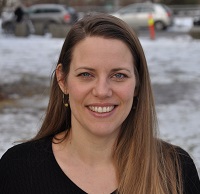The public defence will be held as a video conference over Zoom.
The defence will follow regular procedure as far as possible, hence it will be open to the public and the audience can ask ex auditorio questions when invited to do so.
Click here to participate in the public defence
Due to copyright reasons, an electronic copy of the thesis must be ordered from the faculty. In order for the faculty to have time to process the order, it must be received by the faculty no later than 2 days prior to the public defence. Orders received later than 2 days before the defence will not be processed. Inquiries regarding the thesis after the public defence must be addressed to the candidate.
Digital Trial Lecture – time and place
Adjudication committee
- First opponent: Associate Professor Louise Pape-Haugaard, Aalborg University
- Second opponent: Professor Mariann Fossum, University of Agder
- Third member and chair of the evaluation committee: Professor Jan Helge Solbakk, University of Oslo
Chair of the Defence
Professor Emeritus Per Nortvedt, Faculty of Medicine, University of Oslo
Principal Supervisor
Professor Anne Moen, Institute of Health and Society, University of Oslo
Summary
Good nutrition status is a core enabler of health and active participation in old age. Undernutrition is a prevalent and persistent problem among older adults, and often seen in connection with increased care dependence. Small, subtle or unconscious changes in dietary habits can increase vulnerability for undernutrition in old age. Nutrition apps holds potential to increase awareness among older adults and health professionals about dietary challenges in old age, but is a scarcely explored field. This study explored the feasibility of introducing a nutrition app called Appetitus in home care, and opportunities in supporting early interventions to prevent undernutrition and manage nutritional challenges among home-dwelling older adults. We interviewed older adults and health care professionals to explore their experience with using Appetitus. We also collected log data on use of the app directly from Appetitus. The majority of older adults recorded their food and beverage consumptions in the Appetitus app daily or several days a week in the trial period. Support from healthcare professionals facilitated participants’ use of the Appetitus app, and specific nutritional follow-up from health care professionals helped to make older adults experience of using Appetitus more meaningful. Several older adults were inspired to have a more varied diet when they used Appetitus, and they choose food alternatives that helped to consume sufficient protein or energy. However, some participants made no effort to change in diet despite feedback from the app that suggested they did not eat or drink enough. Health care professionals used Appetitus as a mediator in dialogues about nutrition. Giving the older adults an active role in nutrition assessment afforded opportunities to strengthen their involvement in care. Registrations of food and drink consumption gave the health care professionals insight into patients’ situations and revealed problems of which the health care professionals had not been aware. This supported early interventions and increased attention to health promotion.
Additional information
Contact the research support staff.
